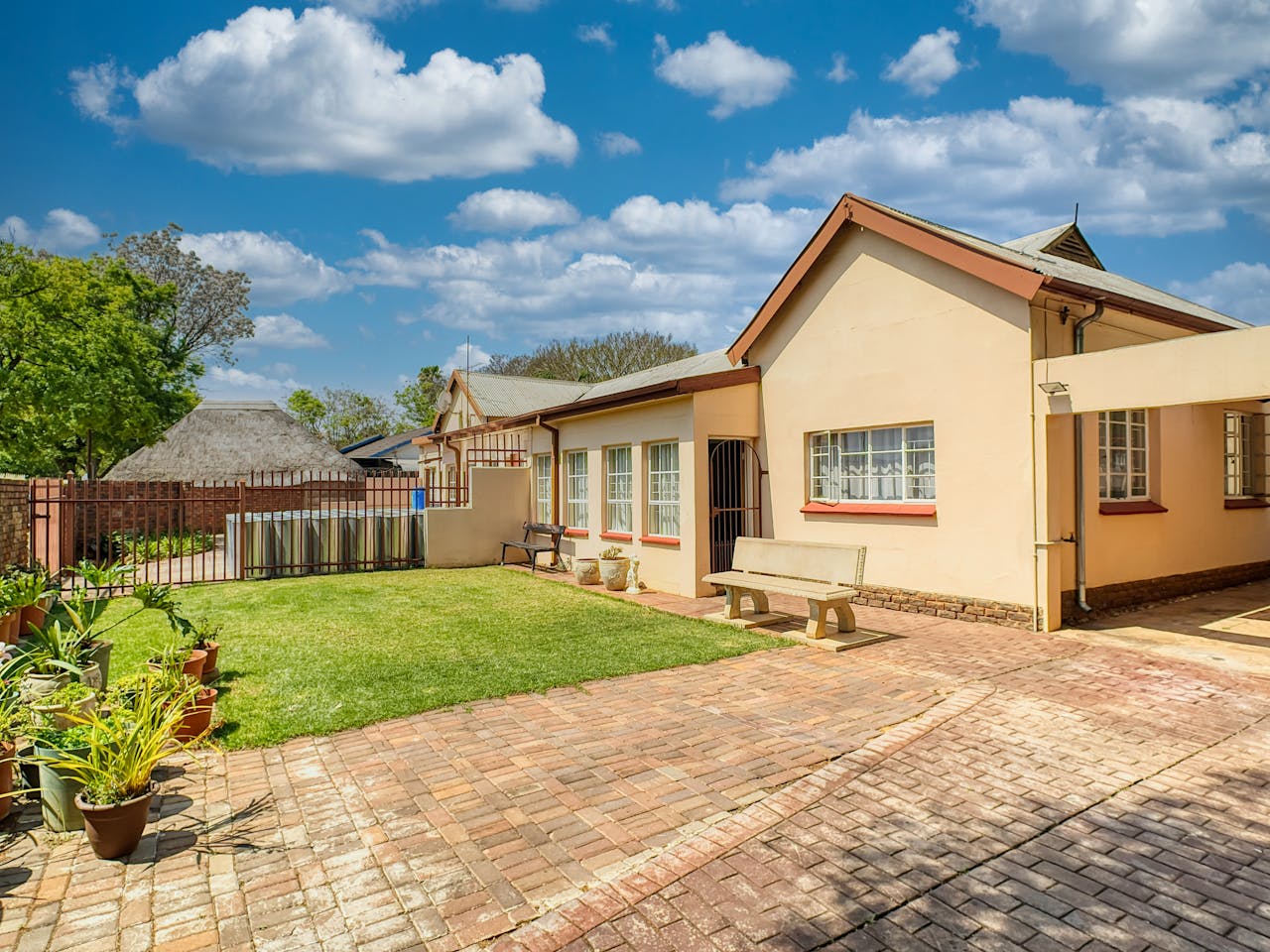Paver driveways typically last 25 – 40 years, which is comparable to or above most driveway options. You’ll discover that concrete driveways hold up to 20 to 30 years, and asphalt driveways around 15 to 20 years with standard maintenance. Pavers resist cracks and shifting since each piece shifts, too, so repairs are easy and inexpensive. A lot of people dig the look of pavers, but the true appeal is lower maintenance in the long run. For your next driveway, longevity is just one piece to balance against price, maintenance, and appearance. The following sections parse the figures and provide straightforward advice to guide you in choosing what suits your scheme the best.
Key Takeaways
- With proper installation and maintenance, paver driveways will outlast concrete, asphalt, and gravel options — often 25 or more years.
- Not to mention, environmental factors such as climate and traffic levels can greatly impact the longevity of all driveway varieties — take stock of your local conditions before making a final decision.
- Paver driveways don’t crack, and if a unit breaks, you can just replace it, so post-installation maintenance is easier and less expensive than concrete or asphalt.
- When you buy quality and professional installation for your paver driveway, you’re making an investment that helps it last.
- With routine maintenance such as cleaning, joint sanding, and sealing, you can help your paver driveway last for decades and look stunning for years to come.
- In this way, selecting paver driveways can save you money in the long run due to their longevity, simple maintenance, and ability to increase your home’s worth.
Paver Driveway Lifespan Comparison
Your driveway’s lifespan is important. Your decision between paver, concrete, asphalt, and gravel driveways will determine not just how long your driveway lasts, but how much work and money you burn through over the years. Here’s how they compare.
1. Concrete Slabs
Concrete driveways can last around 30 years with proper seams and maintenance, but they tend to crack due to soil movement or freeze-thaw cycles. Those cracks are not only difficult to repair but tend to increase over time.
You have to reseal concrete every few years and patch cracks as soon as they appear. Paver driveways need cleaning and joint sand, but you can replace individual pavers if there’s damage—no redoing the entire drive. Concrete can take a beating in rough climates, particularly where temperatures swing rapidly. It allows water to seep into small cracks, freeze, and split the slab even further. That’s less of an issue for pavers, which flex with ground movement.
Concrete provides a neat appearance, but design possibilities are limited. Paver driveways are available in a wide variety of colors and patterns, allowing you to select a design that matches your preferences.
2. Asphalt Surfaces
Asphalt driveways generally have a lifespan of 15 to 25 years. To maintain them, you’ll have to seal them every 2-3 years, or cracks and holes will appear quickly.
Hot and cold swings make asphalt soft or brittle, creating more repairs. Repairing asphalt is cheaper initially, but it accumulates, particularly if sizable patches require maintenance. Asphalt is petroleum-based, and that concerns the environment more than natural stone or brick pavers might.
3. Gravel Drives
Gravel can last as long as you’re piling it on, but the surface shifts and wears, particularly with frequent or heavy rain and traffic. You’ll frequently have to rake and add more gravel, which can be tedious.
Gravel drains well, but can wash away, leaving ruts or bare spots. It’s easy and inexpensive to install, but it can’t compete with the pristine, polished appearance of paver driveways. Pavers provide greater curb appeal, and they resist wear much better in high-traffic areas.
4. The Paver Advantage
Concrete, brick, or stone paver driveways last 20–30 years, frequently over 50 years with good maintenance. They won’t crack like slabs, and if a paver breaks, just swap it out. Pavers are available in a wide variety of styles and colors.
Easy repairs. Pavers are valuable, and they look sharp. They hold up the best.
What Determines True Durability?
When designing a driveway, what lasts is about more than just choosing a material. You want a finish that withstands age, elements, and wear, regardless of where you live. True durability depends on the build, the material, the climate, and the way you use the space.
The Foundation
What’s the secret to a durable paver driveway? Without it, even the best pavers won’t endure. For pavers, you dig even deeper—typically 200 to 300 mm—to remove loose soil and roots. Then, you put down crushed stone or gravel, left in lifts, to compact, to create a flat, stable sub-base. This is even more critical than it is for a poured concrete or asphalt drive, as pavers depend on the base for long-term support. If the base is thin or not well compacted, you’ll notice dips, cracking, or shifting within a few years. Be sure to always check soil stability before you begin, particularly if you’ve got clay or sandy ground.
Material Quality
What goes on top is just as important as what’s underneath it. With premium pavers at 60–80 millimeters thick, they carry both cars and trucks effortlessly. Here’s how they stack up against other options:
Material | Compressive Strength (MPa) | Typical Lifespan (years) | Maintenance Need |
Concrete Pavers | 55–70 | 30–50+ | Low if sealed regularly |
Asphalt | 20–30 | 15–25 | High (reseal, patching) |
Poured Concrete | 28–40 | 20–30 | Medium (crack repair) |
Why low-grade pavers or inexpensive concrete might translate into more cracking, more weeds, and more expense over the long term. So, it’s best to buy from trusted sources so you know what you’re getting.
Climate Impact
What determines the true durability of your driveway is local weather. In cold-winter regions, freeze-thaw cycles can fissure asphalt and poured concrete, but pavers are less likely to fracture because each block can shift slightly. In heavy rain or snow areas, pavers drain water superbly when installed with a slight slope, about 2%. You’ll have fewer puddles, less erosion, and less risk of ice damage. Consider your weather always when selecting a driveway.
Traffic Load
Heavy loads put additional stress on a driveway. For houses, regular pavers are just dandy, but for high-traffic commercial locations, ones with extra thickness or a reinforced sub-base are superior. Pavers distribute weight more equally than asphalt or concrete, so they hold up better under cars and trucks. That’s because you check how many vehicles are anticipated each day, and pick the thickness and base depth accordingly.
Installation Craft
How your driveway is installed MEANS EVERYTHING! Professional installers understand how to compact each layer, establish the appropriate slope, and allow space for paver joints. DIY jobs often forget steps, leading to sink or shift issues, which can cost extra to repair later. For true durability, employ a team that knows paver driveways.

The Inevitable: Repair VS. Replace
All driveways require maintenance with age, regardless of the material. Whether to repair or replace your driveway depends on price, convenience, and the degree of bother you desire. Here’s when repair makes sense:
- In this case, the damage is local, like a few cracked pavers or small potholes.
- The structure below is still strong.
- You want to avoid the expensive removal and disposal fees ($1,000–$2,500).
- You want less mess and a quick fix.
- The surface still looks good after patching.
- Easy repairs are less expensive upfront than a total overhaul.
- You want to preserve your house’s function while it gets fixed.
Getting at least three quotes helps you compare. Be sure that each quote includes the same work and inquire about additional fees, such as repairing bad soil or adding base layers.
Paver Repair
Minor repairs to paver drives are quite straightforward. You remove the damaged pavers, inspect the sand or base, repair if necessary, and insert new pavers. No big machines, no noise, no mess. This sort of fix is optimal when damage is located in one area and the remainder of the drive is intact.
Pavers excel in this arena since you can replace just what’s damaged. If a tree root lifts a couple of pavers or an oil stain appears, you aren’t forced to resurface the entire drive. You just patch the hole. That keeps expenses lower, typically $10–$50 per m2, and you only pay for what you repair.
It works quickly, and you can use your driveway immediately. Periodic inspections, say once or twice a year, enable you to identify loose or sunken pavers in their infancy.
Concrete Repair
With concrete, repairs = patching cracks or filling holes, or overlays. Repairs can be patchy, and colors may not align. Sometimes the repair is more noticeable than the defect.
Concrete lasts 30–40 years if you maintain it. Once patched, cracks can resurface. If water gets in or the base is weak, repairs may not hold. A bad spot can recur.
Asphalt Repair
You repair asphalt by crack fill, pothole patches, or a thin overlay. Sealcoating once every few years helps to keep the water out and the cracks from spreading.
Asphalt patches don’t blend as nicely as pavers. You will notice the repair, and it may not last as long, particularly if the base is soft. Paver repairs not only look better but last longer. Asphalt drives last 15–20 years, but require more maintenance.
Extending Paver Driveway Life
Paver driveways typically last 20 to 30 years, but with the right maintenance, they can last even longer. A little maintenance goes a long way if you want to extend the life of your investment. Here are practical tips to help you keep your paver driveway looking and functioning at its best:
- Check your driveway every few months for loose or cracked pavers.
- Clean stains and remove debris promptly.
- Replenish joint sand to maintain stability.
- If you have brick or natural stone pavers, be sure to apply sealant every 2 years.
- Address weeds and moss growth early.
- Select 60–80 mm-thick pavers for high-traffic usage.
- Buy from reputable suppliers for consistent quality.
- Set up a schedule for cleaning, sealing, and repairs.
Routine Cleaning
Sweep your driveway once a week, and it will take you far. Clear leaves, dirt, and debris that can hold moisture and stain. Spot clean with water and a mild, pH-neutral soap.
Pressure washing assists in bringing your pavers’ look back to life, particularly on oil or organic staining. It removes ingrained dirt and maintains brightness with minimal abrasion. Just be careful not to blow out the joint sand.
Regular washing additionally prevents weeds from pushing up between pavers. By keeping debris out, you inhibit weed growth and reduce maintenance.
Always use mild solutions. Acids or caustic chemicals can etch the surface or stain, particularly on natural stone.
Joint Sanding
Joint sand secures every paver and contributes to stability. When the sand washes out, pavers can shift or settle, causing uneven surfaces or cracks.
Annual sanding — either with polymeric or kiln-dried — will prevent shifting and block weeds. Not all sand acts the same – which type you use will determine how well the pavers lock together.
Inspect and refill sand when needed, particularly after significant rainfall or pressure washing. It’s a simple and inexpensive method to maintain your driveway secure and stable!
Sealing
Sealing your paver driveway shields it from stains, oil, and water. It helps maintain color and slows down fading, which is useful for concrete and natural stone pavers.
Most driveways require resealing every two years for optimal results. Compare this to asphalt or concrete: those surfaces often need sealing more often and are less tolerant to missed treatments.
Apply a quality sealant for the best possible protection. Top-quality sealants have staying power and protect against severe weather, critical considerations if you’re hoping your pavers can survive for decades.
The Unseen Longevity Factor
A lot goes into determining your driveway’s longevity — far more than simply the materials you select. Soil, water drainage, and edge support can alter the lifespan of paver driveways more than you might imagine. If you want a driveway that stands strong over time, you need to see beneath the surface.
Soil Conditions
Soil type and compaction are more important than most of us realize. If the dirt beneath your driveway is loose or sandy, the pavers can shift or settle unevenly after some time. Dense, well-packed soil provides a foundation for your driveway to stay level and resist sagging. The proper base can be the difference between a smooth driveway and one that has dips and bumps.
Testing your soil before you start the project helps identify weak areas. Clay-rich soil can retain water and freeze, shifting pavers. If your dirt is too loose, it won’t hold up to car traffic for very long. With a soil test, you know if you need soil added or compacted, so you get a firmer base. Doing so, step up front, prevents your driveway from requiring repairs prematurely as well.
Water Drainage
Water is a driveway killer. If rain or melting snow bunches on your pavers, it can percolate down and undermine the base, causing cracks or sinking. Wet spots can promote weed growth between the pavers, which damages their longevity as well. In freezing locales, imprisoned water can cause expansion and ruin pavers.
Drainage planning is crucial. You can grade your driveway to allow water to run off, or add drains along the edges. Others use permeable pavers that allow water to flow through but provide solid support for vehicles. Proper drainage prevents water from stagnating and maintains your driveway in better condition.
Edge Restraints
Edge restraints are not mere decoration. They secure your pavers and prevent them from flaring out at the edges. If you omit edge restraints, pavers can begin to shift, and the entire surface can fragment over time. You can choose from plastic, metal, or concrete barriers, but all assist in keeping your driveway durable.
Incorporating edge restraints when you pour your driveway is a measure worth considering. It’s an easy step to forget, but it’s what keeps your pavers tight and level for years. By designing for edge support, you assist your driveway in lasting significantly longer.
The Long-Term Financial Reality
Selecting a driveway for your home isn’t simply a matter of the initial purchase price. What you choose today will determine what you spend tomorrow. You have to consider the longevity of each, how frequently you’ll need to repair it, and what kind of return you might receive when you sell your place. Paver driveways can appear to be expensive initially, but the narrative turns over time.
Driveway Material | Average Lifespan (years) | Upfront Cost (USD/m²) | Midlife Repairs | Major Repairs Needed | Long-Term Cost (20+ yrs) | ROI/Resale Value |
Concrete Pavers | 25–50 | High | Low | Rare | Economical after ~15 yrs | 5–10% (up to 75% for high-end) |
Concrete | Up to 30 | Medium | Medium | Likely | Costly after 20 years | Low–Medium |
Asphalt | 15–20 | Low | High | Frequent | Costly over the lifespan | Low |
Paver driveways can look expensive initially. In 15 to 25 years, you’ll almost certainly pay less in repairs than you would with concrete or asphalt. Concrete requires patching and, occasionally, a complete redo after roughly 20 years. Asphalt requires periodic sealing and new patches. Pavers rarely require major repairs. If one brick cracks, you can replace it without ripping up the entire drive. This saves money and hassle in the long run.
Thinking of selling your home, paver driveways can provide a lift to your property. Buyers love the clean, complete appearance! Studies indicate paver drives can increase resale value by around 5 – 10%. If you have a designer one, you might recoup up to 75 percent of your investment. This is less likely with bare concrete or asphalt.
It’s not just about how much you pay on day 1. You get the best deal by examining both the up-front and long-term costs. Build well counts. The base preparation and installation are what make your drive last. A quality-built paver driveway could last 25-50 years with minimal maintenance.

Conclusion
You end up with a durable surface that resists aging, erosion, and usage better than most. Concrete and asphalt require more repairs and don’t compare to the appearance or longevity of pavers. You can replace individual pavers if you notice an issue, so major repairs don’t slow you down. From Berlin to Sydney, pavers maintain their form and fashion. The initial expense can be a little more, but you recover savings on repairs and maintenance over the long haul. Want less concern and more worth? Pavers wear well. For additional tips or a care step-by-step, see our complete resources or contact us with your questions.
Frequently Asked Questions
1. How Long Do Paver Driveways Typically Last?
With maintenance, you can count on a paver driveway lasting 25–50 years, which is competitive with other driveway options. Oftentimes longer than asphalt or poured concrete driveways, pavers are a lasting option.
2. Are Paver Driveways More Durable Than Concrete Or Asphalt?
Yes, paver driveways tend to last much longer. They resist cracking and shifting better than most concrete or asphalt driveways, particularly in regions with temperature fluctuations.
3. What Maintenance Do Paver Driveways Require?
You have to sweep, pull up weeds, and add sand between the pavers. A good seal every few years helps extend your driveway’s life.
4. Can Damaged Paver Driveways Be Repaired Easily?
That’s right, paver driveways are simple to fix. Because you can replace only the damaged pavers, without disturbing all of the others, it saves time and money as well.
5. What Factors Affect The Lifespan Of A Paver Driveway?
It all comes down to quality materials, installation, climate, drainage, and maintenance. Assuming you take care of these areas, you should have a driveway that lasts for a while.
6. Is A Paver Driveway More Expensive In The Long Run?
Although paver driveways are initially more expensive, they end up saving you money in the long run.
7. How Can You Extend The Life Of Your Paver Driveway?
Routine cleaning, sealing, and quick repair of cracked pavers will keep driveways lasting as long as possible. Proper care saves you from major issues down the line.
Invest In Durability—Talk To Our Experts About Lifetime Value
A beautiful driveway shouldn’t just look good now—it should last for decades with minimal maintenance and maximum return. That’s the true power of professionally installed pavers. With a well-built base, proper drainage, and high-quality materials, your paver driveway can outlast concrete and asphalt alternatives by years, often up to 50 years or more. Plus, paver repairs are fast, affordable, and nearly invisible, unlike the patchy fixes required for other materials. When you invest in pavers, you’re not just buying a driveway—you’re buying peace of mind, long-term value, and greater curb appeal. Talk to our build team today and discover how our proven process delivers a driveway that stands the test of time.
Disclaimer: Actual driveway lifespan and maintenance needs may vary based on installation quality, soil conditions, climate, and usage. Always consult with a licensed professional to assess your site-specific requirements before starting any project.





